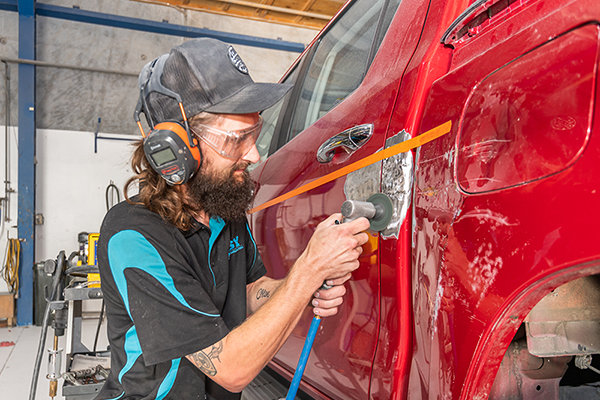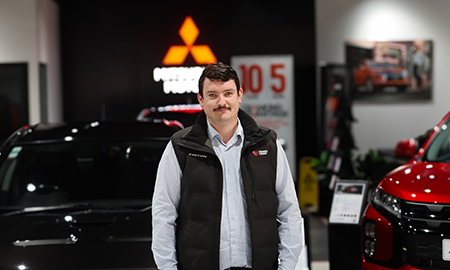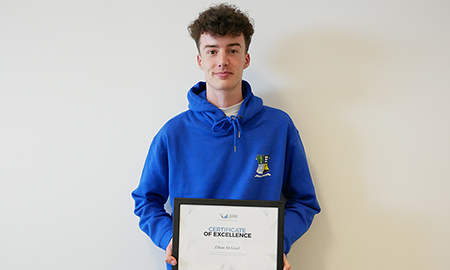Fees Down, Skills Up
31-year-old Shaun Roussel is currently completing MITO’s New Zealand Certificate in Collision Repair (Structural Repair) (Level 5). Shaun’s love for panel beating and cars began when he was just 13 years old. “When I was 13, I bought a car. It was an old Ford Escort and every day after school I would try and panel beat it. I would go down to the local panel shop in Whakatane and get the team to give me pointers on what to do. I went home and did what they said and got it all up to standard and then took it to them to paint.” From there Shaun went on to complete a panel beating course through the Salvation Army. After that he was able to get a full-time job in panel beating.
“I started panel beating in 2005 and started my apprenticeship in 2006. Being so young I didn’t spend as much time on it, so I changed jobs a few times and didn’t complete the apprenticeship. I managed to get jobs without having the qualifications and was able to continue working and have been doing so for about 15 years now.”
When the Government announced they were funding apprenticeships, Shaun didn’t waste any time and applied for a job to get qualified. “I got my current job when I saw that the apprenticeship fees were getting paid for and took full advantage of this. I wanted to make the most of what I had, with the knowledge that I had.”

Shaun Roussel is completing the New Zealand Certificate in Collision Repair (Structural Repair) (Level 5)
Shaun’s apprenticeship journey has been a rather fast one. “I finished my level 3 and 4 qualifications in about 4 months. This took a lot of dedication and late nights.” Shaun credits this fast completion to his current workplace. “When looking for an apprenticeship I had three jobs lined up. PSY Slater Panelbeaters was the best fit for me. We get to work on a variety of jobs throughout the week and that helps me be able to sign off on the book work and assessments.” He is hoping to finish his Level 5 qualification by the end of the year.
One way Shaun is making this happen is his preparation. “At home I will write down what I need- photos for my practical work. When I go to work the next day, I talk to my foreman and if there is a job that has certain things I need to complete for my assessments, I ask if he can allocate those jobs to me.”
Shaun also credits the fact that most of the assessment work is all online now making it a lot easier to get his assessments completed. “When I first started an apprenticeship in 2006 it was all paper based and nothing was online. We had to wait weeks for our papers to come back and see if we had passed or not. Now everything is all online it is easy. I can see all the practicals and assessments needed over the whole apprenticeship at once. For example, welding. That was a bit further down in the course, however, at the time I was doing a lot of welding work. I was able to record the welds I had done and take photos of those. Then when I was doing painting work, I would take the photos needed for that section then as well. Being able to jump between the courses is really handy.”
Welding is also one of Shaun’s favorite parts of his role, along with the process of putting everything back together. “Fitting new panels and following the repair specifications that come with the job is really interesting. It is cool to see the before and after, standing back once it is all done and painted, thinking, I’ve done that!”
As Shaun nears the end of his apprenticeship, he hopes to continue upskilling. “I will probably continue with the I-CAR courses that are available. I am also hoping to complete MITO’s Electric Vehicle Automotive Engineering certificate.”
As for any fellow or future apprentices out there, Shaun says that the changing industry always provides a challenge and something new to learn. “Trades are good to get into and they are always changing. With the new makes and models of cars that have more and more features it is exciting and provides an opportunity to explore and learn more.”



